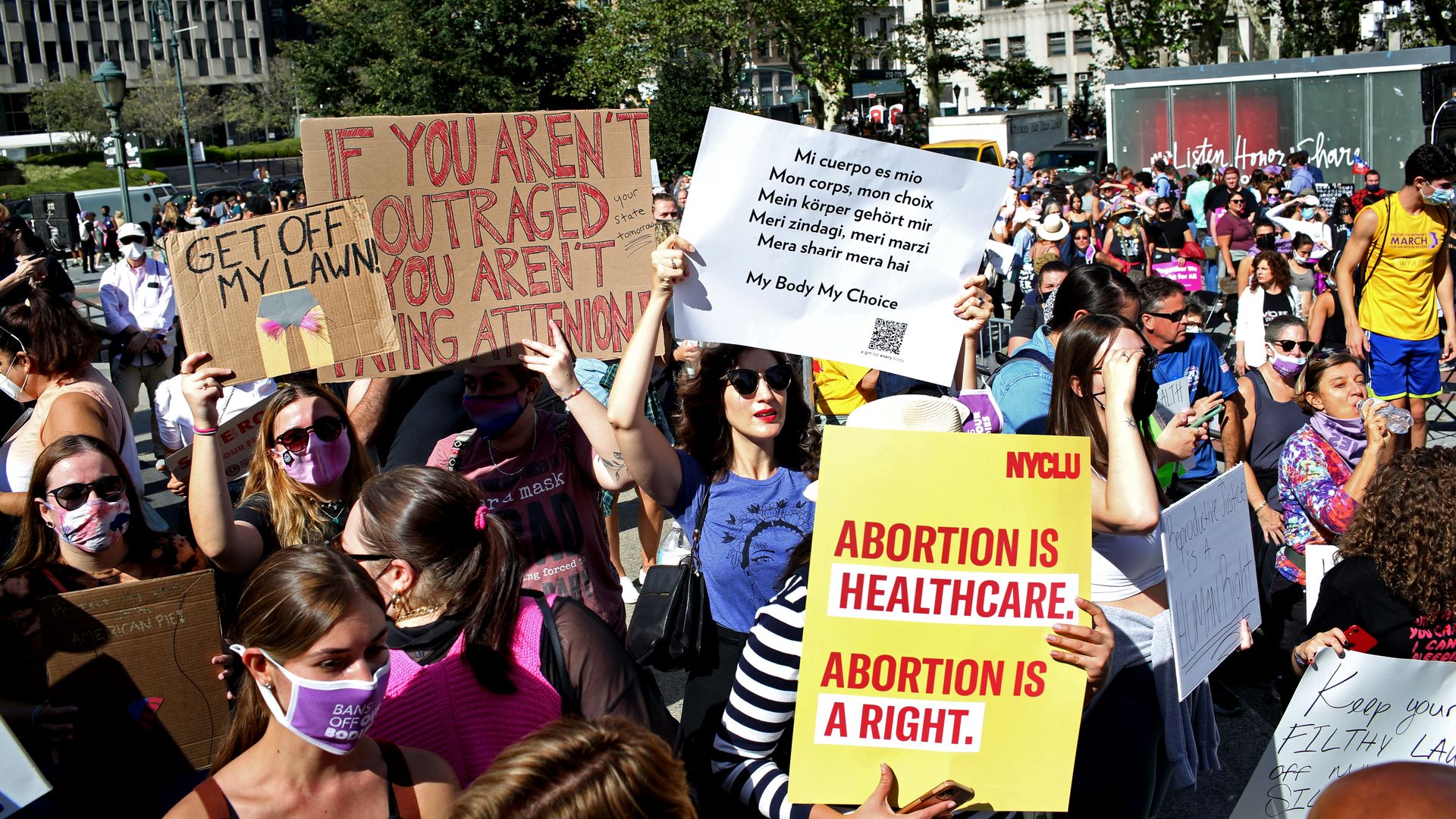Oct 12, 2021 - Politics & Policy
Justice Department again urges courts to suspend Texas abortion law
Add Axios as your preferred source to
see more of our stories on Google.

People rally in support of abortion rights in New York City on Oct. 2. Photo: Yana Paskova/Getty Images
